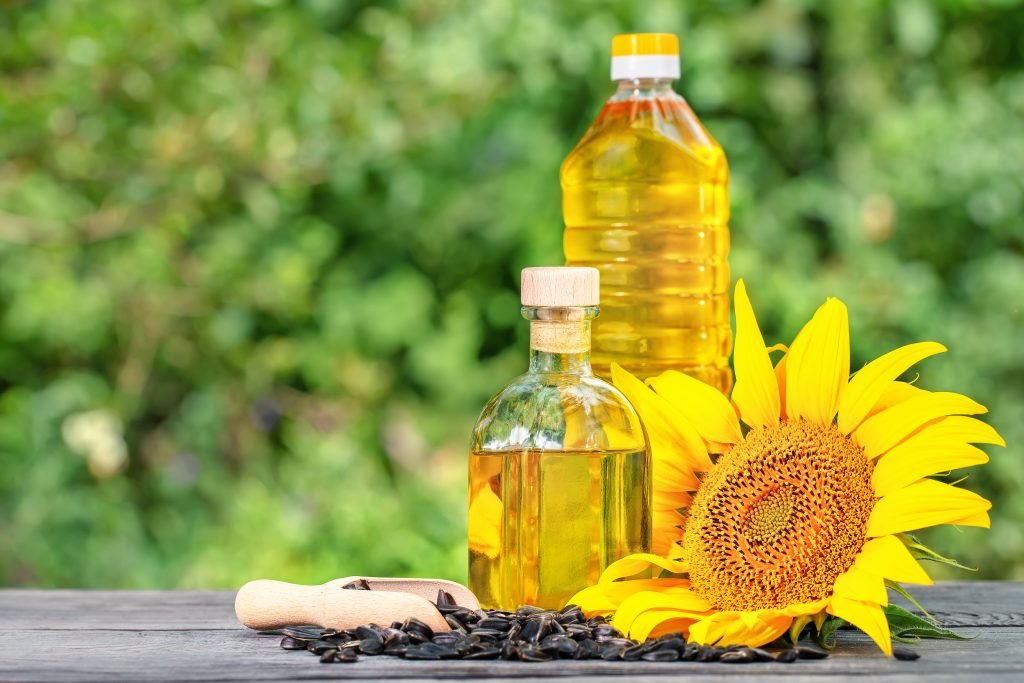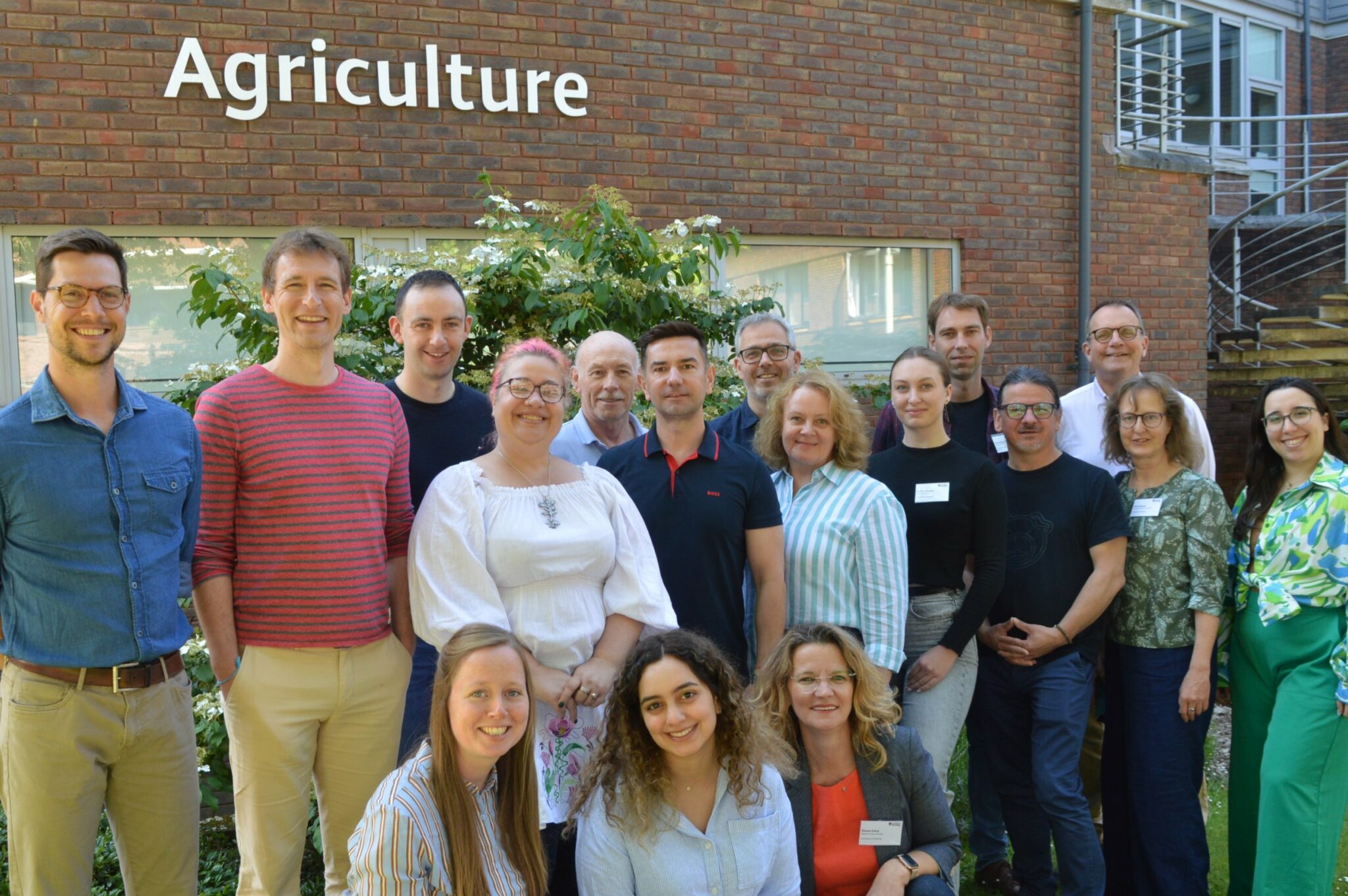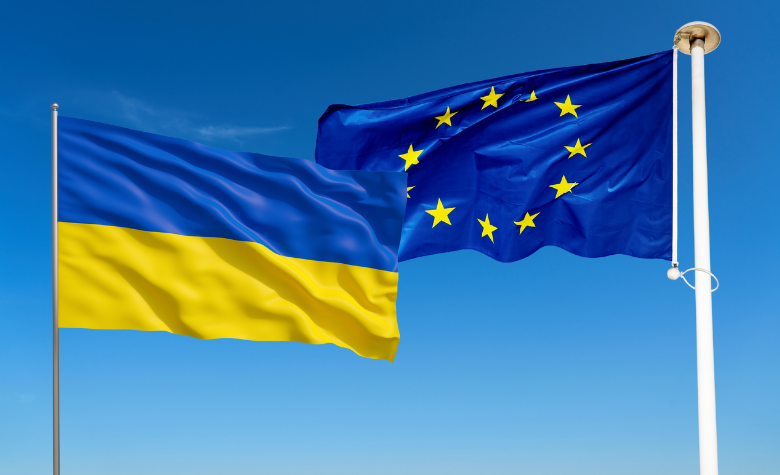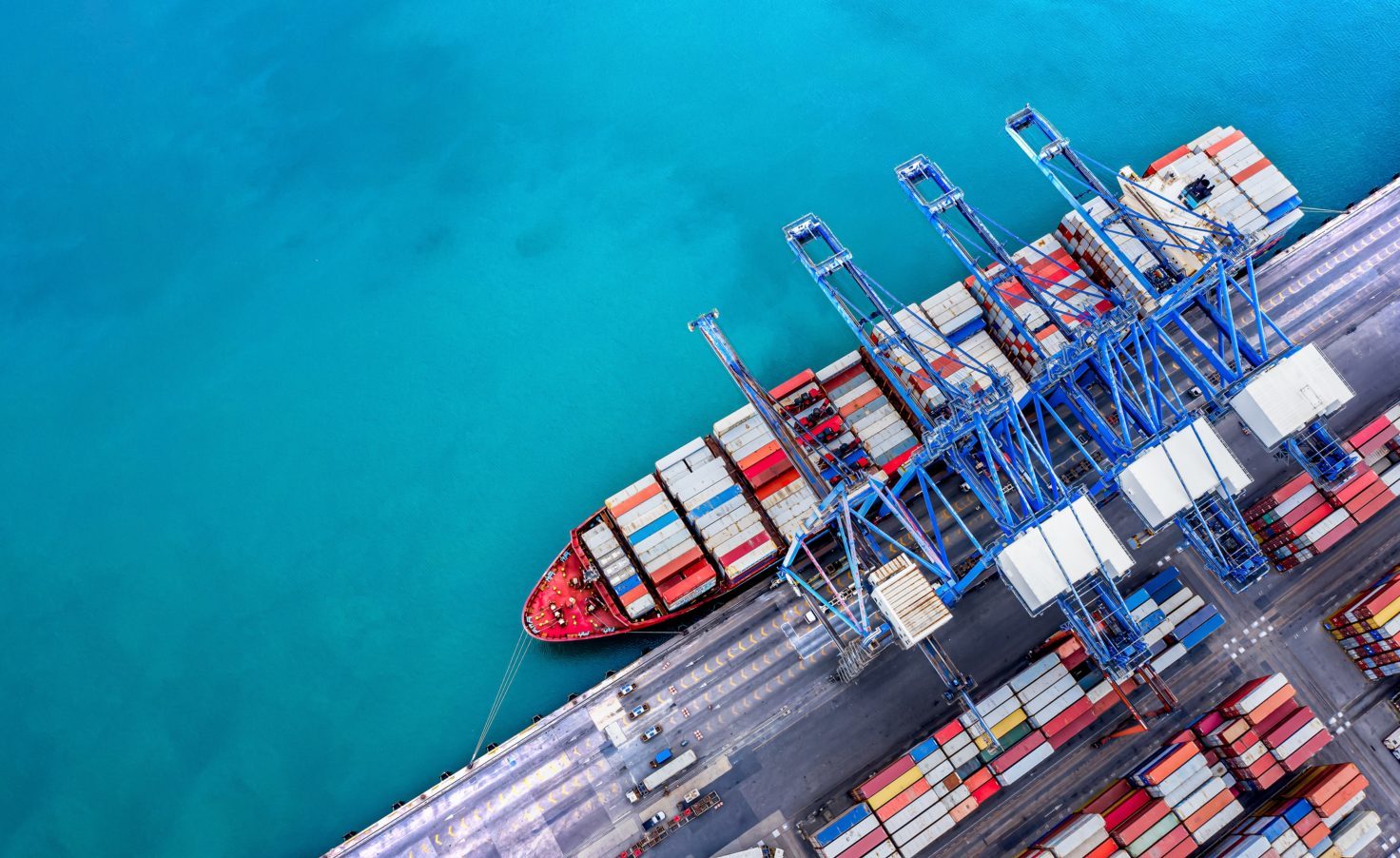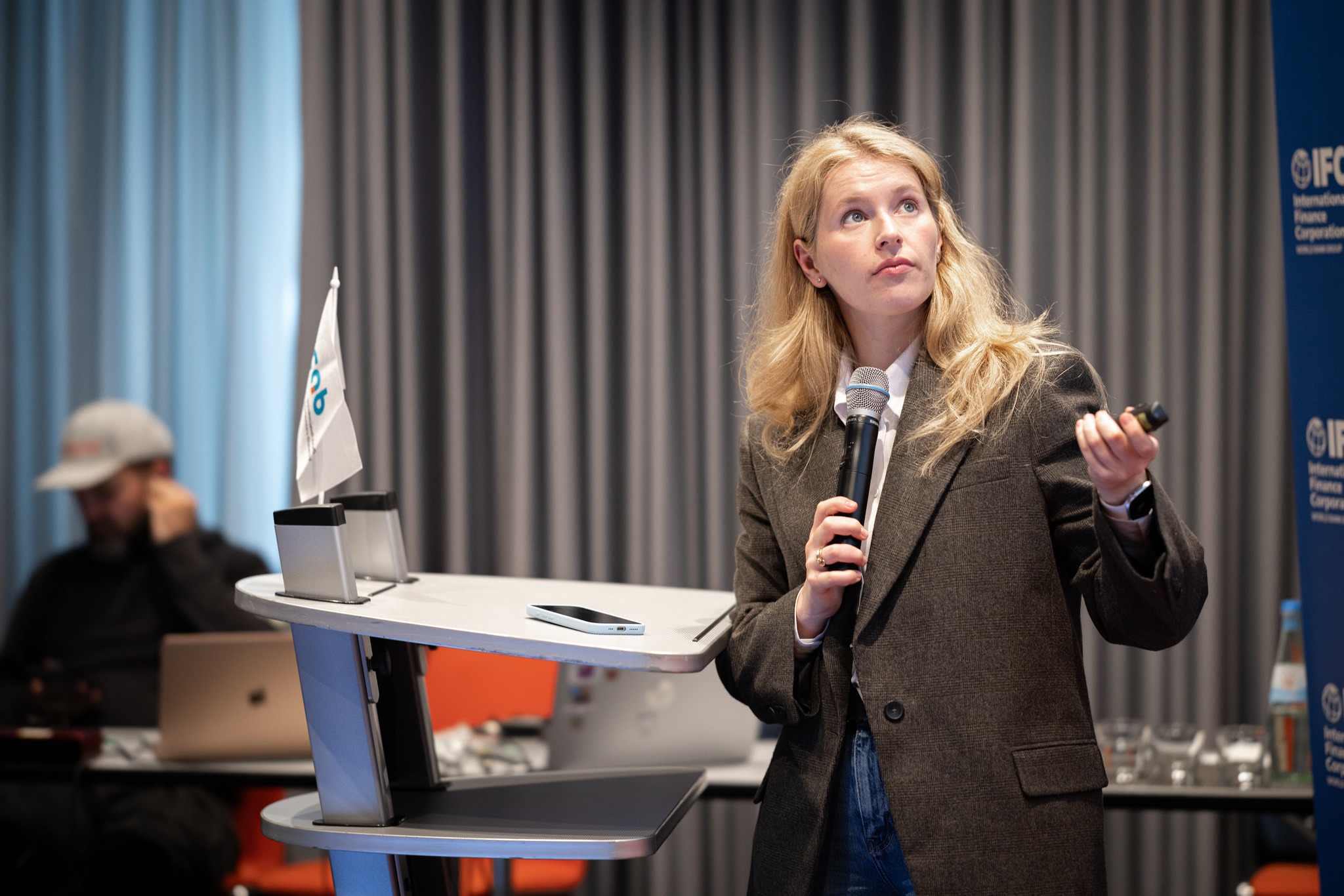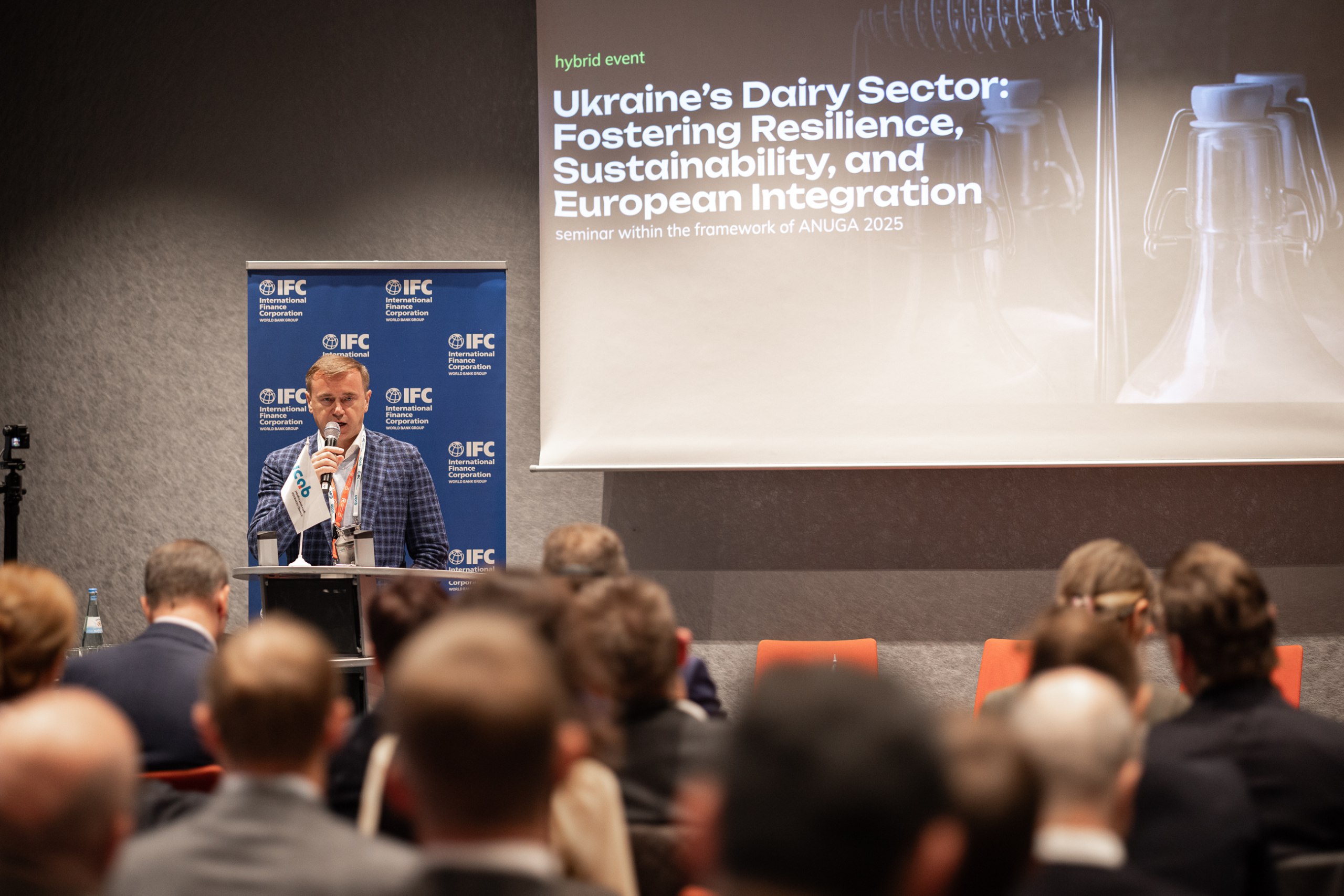
On October 6, the International Finance Corporation (IFC), a member of the World Bank Group, in partnership with the Ministry of Finance of the Czech Republic and the UK Government, and in cooperation with the Ukrainian Agribusiness Club Association (UCAB), held the workshop “Ukraine’s Dairy Sector: Fostering Resilience, Sustainability, and European Integration” within the framework of the international food exhibition ANUGA 2025.
The workshop was organized as part of the AgriResilience initiative, through which IFC and its partners are working to strengthen sustainable and resilient food systems in Ukraine and across Central and Eastern Europe. The project aims to unlock private sector investment in agribusinesses that are adapting to transformational shifts.
Alex Lissitsa, President of UCAB and Chairman of the Board at IMC, addressed the guests with a welcome speech, emphasizing the importance of the European integration path for Ukraine’s dairy sector: “I am firmly convinced that Ukraine will become a member of the European Union by 2035 at the latest. We have 10 years to transform our economy, and in particular, to transform our dairy sector into a new format, so that it will be ready to become part of European society. Unfortunately, about 1 million farm animals have been killed in Ukraine over the last four years. But at the same time, Ukrainian farmers are very flexible in their thinking, learning, and ability to adapt – and this means that we will be able to prepare for EU accession even in such a complex and competitive sector as dairy production.”
Yekaterina Foster, Operations Officer, Manufacturing, Agribusiness and Services Europe at the IFC, also welcomed the workshop participants. She emphasized the strategic importance of supporting Ukraine’s private agricultural sector throughout the entire value chain, which remains a key priority for IFC in terms of investment, advisory, and overall support.
Taras Vysotskyi, First Deputy Minister of Economy, Environment and Agriculture of Ukraine, spoke about the achievements of the dairy industry’s European integration in the context of the war: “Despite the war, the Ukrainian dairy sector is demonstrating resilience and modernizing. There is a reduction in the number of cows in households, but stabilization and even growth in industrial enterprises. At the same time, productivity is constantly increasing, and the quality of raw materials has reached a high level: in 2024, 55% of the milk that goes to processing is of the extra grade. The key task for Ukraine remains the full harmonization of legislation with EU norms, particularly within the framework of agricultural chapters 11 and 12 of the Association Agreement. Ukrainian producers understand that quality requirements, including the rejection of first and second-grade milk, are inevitable, and they are preparing for this, although they will need transition periods to fully adapt the standards. The potential for export growth in the dairy industry is significant, as even the current trade quotas with the EU are not fully utilized for a number of items.”
“In 2024, Ukraine demonstrated significant results in the global dairy market, ranking 12th among butter exporters, 15th in powdered milk and cream, and 17th in cheese. The total export values for these products reached $49 million, $74 million, and $54 million, respectively. However, compared to the multi-billion dollar global markets (e.g., ~$17 billion for powdered milk and ~$19 billion for cheese), the potential for growth remains enormous. The main challenge is logistics, as the export of dairy products, especially in refrigerated containers, is heavily dependent on the stable operation of the Black Sea ports. Resuming the full operation of sea routes will allow for an increase in supplies to distant markets, particularly to Southeast Asia, which was an important destination before 2022,” added Oleksandra Avramenko, Head of the European Integration Committee at UCAB.
In turn, Olena Stretovych, CEO of Organic Milk, provided an overview of the trends and opportunities in organic milk production in Ukraine: “In 2024, 3 million kg of organic dairy products worth about 10 million euros were sold on the domestic market in Ukraine. However, the high cost of production, driven by 2.5-3 times lower yields of organic feed, makes the products significantly more expensive. Low consumer awareness, as people often do not understand the difference between organic and regular milk, also hinders market development. A key obstacle remains the complex and expensive certification process, which is a real ‘quest’ for both producers and their European distributor partners, who are also required to undergo it”.
During his presentation on “IFC’s Toolkit to Bolster the Resilience of the Agribusiness Sector,” Rafal Golebiowski, Chief Investment Officer at the International Finance Corporation (IFC), World Bank Group, noted that while development finance institutions do not typically finance projects during a war due to extremely high risks, IFC has been able to continue its work in Ukraine thanks to the support of donor countries. This has allowed for a partial reduction of the risk burden and the allocation of significant resources to support the Ukrainian economy: $1.7 billion from IFC’s own account and $1 billion in mobilized funds. “IFC sees the transition to the production of high-value-added products and integration into European markets as a key direction for Ukraine. This is a strategic goal, reinforced by Ukraine’s aspiration to join the EU. Future financing will be closely linked to environmental and social standards. Instruments such as green and blue financing, tied to sustainable development goals, have already become mainstream in Europe. In addition to direct climate impact, IFC is also exploring the development of carbon credit markets, which would allow farmers to receive additional income for implementing sustainable practices and compensation for carbon sequestration.”
The final part of the event was a panel discussion on “Advancing Sustainable Dairy in Ukraine: Applying Best Practices from European Markets,” featuring Ivan Ivanov, Global Lead for Sustainable Protein Advisory Services at IFC; Rafal Golebiowski, Chief Investment Officer at IFC; Laurens van Delft, Director of Trade & Economics at the European Dairy Association; Andriy Tabalov, Chairman of the European Integration Committee of the Union of Dairy Enterprises of Ukraine; Valentyn Zaporoshchuk, Chairman of the Supervisory Board of the Ichnya Condensed Milk Company (ICMC); and Yuriy Shevchuk, Vice President and Head of Dairy CIS&MENA at Olam Food Ingredients (ofi).
Among the main topics of discussion was the European integration of the Ukrainian dairy industry, which is seen as both a source of significant opportunities and serious challenges. Participants noted that access to the EU market through autonomous trade measures has been a lifeline for Ukrainian producers of raw dairy products, allowing them to survive and find new niches, such as supplying high-protein powdered milk. The European Dairy Association expressed its support for Ukraine’s integration, emphasizing its readiness to cooperate in developing a roadmap for accession. At the same time, Ukrainian representatives stressed their commitment to fair and transparent trade without quotas. A separate challenge is the increase in imports of European products, particularly cheese, which, against the backdrop of falling prices in the EU, could create problems for Ukrainian cheesemakers.
Significant attention was paid to the internal challenges that Ukraine must overcome to compete fully in the European and global markets. A key problem remains the deficit of high-quality raw milk and significantly lower production volumes compared to European countries like Poland. Valentyn Zaporoshchuk emphasized that without increasing milk production, Ukraine will barely be able to meet its own needs, let alone engage in large-scale exports. The need to develop an effective state program in Ukraine to stimulate the dairy industry with investment subsidies, similar to those that spurred growth in Poland, was also discussed. In addition, Yuriy Shevchuk explained the need for the Ukrainian processing industry to modernize and introduce new technologies to produce higher value-added products, such as whey protein concentrate (WPC-80), which is not currently produced in the country.
The discussion participants also stressed that despite the current difficulties, Ukraine has aunique potential to become one of the world’s leading dairy nations. Ivan Ivanov highlighted Ukraine’s key assets – land and a favorable climate – at a time when global demand for dairy products, especially in Asia, is increasing, and traditional producers like the EU and New Zealand have plateaued or are even reducing production. According to Rafal Golebiowski, an important factor that is fundamentally changing the investment attractiveness of the sector is the significant reduction in the payback period for investments in dairy farms – from over 10 years to less than 5. This was confirmed by Andriy Tabalov, who noted that raw milk production is currently a highly profitable business in Ukraine.
Finally, the discussion participants concluded that the driving force for the industry’s development will be a combination of Ukrainian and foreign capital. Even today, despite the war, Ukrainian companies are investing their own funds in building new and profitable farms. It is anticipated that, once the war has ended, Ukraine may attract increased interest from foreign investors. This could be influenced by two main factors: the momentum of sustainable development policies in the EU, which may encourage a shift in certain agricultural activities eastward, and the interest of European companies in diversifying their operations and building partnerships in Ukraine, recognizing its potential as a strong player in the sector.
IFC, together with the Ministry of Finance of the Czech Republic, the UK Government, and the Ukrainian Agribusiness Club Association, sincerely thanks the speakers and participants for the in-depth discussion and valuable insights. By uniting the efforts of business, investors, the state, and international partners, we will be able to strengthen the resilience of the Ukrainian dairy sector, ensure its sustainable development, achieve successful integration into European markets, and make a significant contribution to the food security of Ukraine and the world.
